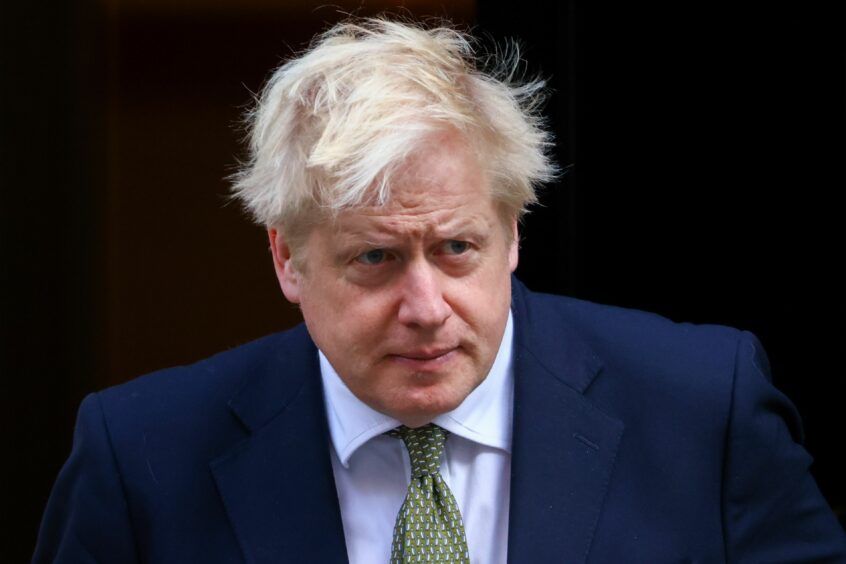
Boris Johnson said the global climate talks the UK is hosting at the end of the month will be “extremely tough,” as he made a last-ditch call on world leaders to take concrete steps to protect the planet.
Participants at the discussions – known as COP26 – must “keep alive” the prospect of containing global warming since pre-industrial times to 1.5 degrees Celsius,” the UK premier said on Monday in an interview with Bloomberg editor-in-chief John Micklethwait. He called for nations to harden their promises to slash emissions.
“COP was always going to be extremely tough,” Johnson said when asked about his goals for the discussions. “We’re going to need to see some real action from the participants,” he said, urging countries to make “hard pledges.”
Johnson aims to use the Oct. 31-Nov. 12 summit in Glasgow to showcase UK leadership on climate change as he carves out a new post-Brexit role for the country. But the ongoing coronavirus pandemic and surging energy prices have thrown curve-balls that threaten to undermine the success of the talks.
While the UK expects to welcome about 120 world leaders to Glasgow, it’s contending with some key no-shows. Chinese President Xi Jinping, whose country is the biggest greenhouse gas emitter, isn’t expected to attend; nor is Brazil’s Jair Bolsonaro. Prime Minister Narendra Modi of India — the world’s third-biggest emitter and a holdout in recent efforts to broker agreements — has yet to confirm.
Johnson wouldn’t be drawn on the likelihood Xi skips an in-person appearance at the summit, saying only that he hopes for a “good turnout in spite of the pandemic.”
But with just two weeks to go until the start of talks, the sense of frustration is growing — both among those who want an ambitious deal to curb emissions and those who want to go slower.
This time a year ago there were hopes the pandemic would speed up the transition to cleaner energy. Now countries are scrambling to keep the lights on as gas prices surge, and it’s thrown into sharp relief the risks of giving up fossil fuels before alternatives are ready to pick up the slack. China is facing a dramatic power crunch — and has responded by ordering miners to dig up as much coal as they can.
Officials from two G-20 nations said privately in recent days that negotiations have run into difficulty, with the perception that some members of the narrower Group of Seven are trying to force decisions onto other countries rather than seeking consensus. That’s fueled an unwillingness to compromise, according to one official. At the same time, some officials say they still see a window, and enough goodwill, to get a deal done.
India, the world’s third-biggest emitter, is also pushing back against pressure to commit to a net-zero target. The country, which is also struggling with severe power outages and is reliant on coal, has been an outspoken critic of climate moves in the G20 this year, and is trying to redefine how emissions are calculated.
US President Joe Biden will be there, but even his climate envoy John Kerry — who has been touring the globe trying to persuade countries to take more ambitious steps — was managing down expectations last week. Biden’s own climate-change plans are in peril at home, raising the prospect he arrives in Glasgow empty-handed.
Temperature Target
A UN report last month that totted up all the national emissions pledges said they’d only be enough to contain the temperature rise by the end of the century to 2.7 degrees Celsius, missing the 1.5 degree goal by a wide mark. The deadline for countries to be included in the next analysis was last Tuesday, but key emitters including China and India missed it.
The difficulties aren’t unique to this round of talks. The annual UN negotiations are often fraught, with talks running overtime almost every year — sometimes by more than a day.
The UK has defined the goals of the summit this year as “coal, cars, cash and trees.”
“We want the world to move away from coal by 2040 — 2030 for the developed nations; we want to make sure everybody stops using hydrocarbon-fueled internal combustion engine cars,” Johnson said.
He also said the UK needed to see rich countries step up and mobilize $100 billion a year “for countries that haven’t been historic emitters to cut their carbon” and also underlined the goal of planting “millions and millions of trees to fix the carbon and restore the balance of nature.”
Recommended for you
